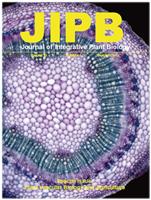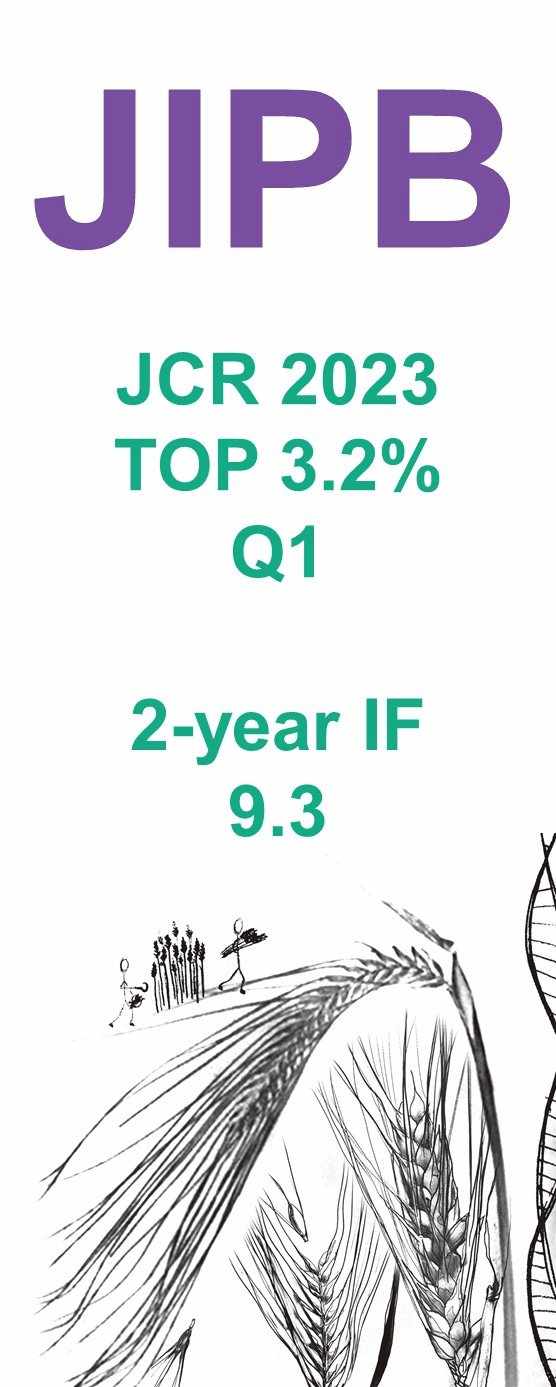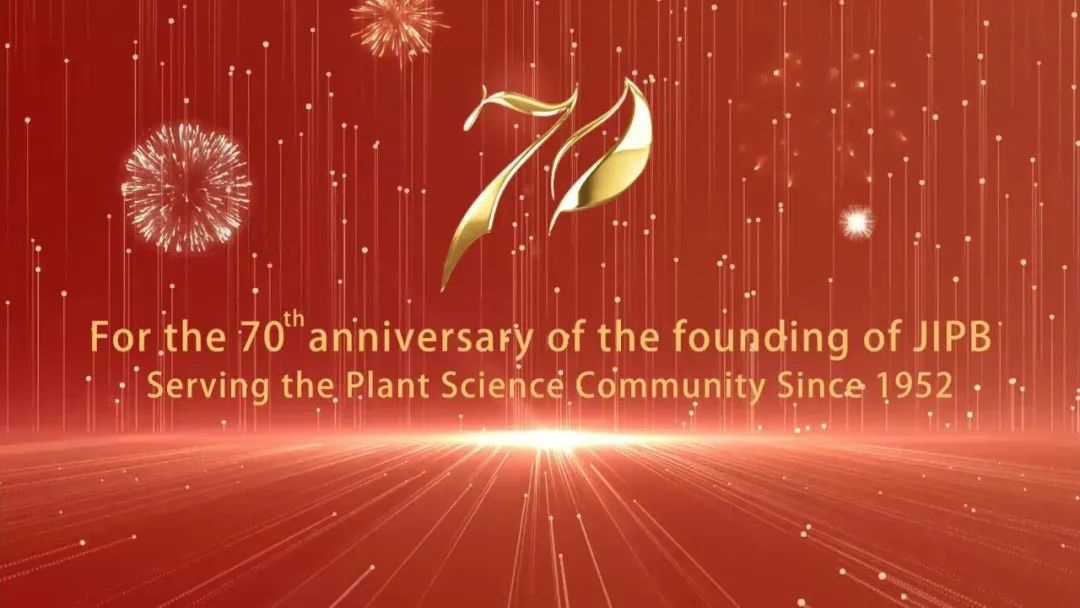Online publication and online reading are gradually becoming routine for scientists and students. Most researchers now follow the scientific development in their expertise area through PubMed, Google Scholar, E-alert and Faculty 1000, etc. This in turn will bring changes to the way of scientific publishing. In JIPB’s case, we have seen a sharp increase of the number of downloads and online subscriptions during the last couple of years, compared to a rather stable hardcopy subscription rate for the same period. As a consequence, during the board meeting on Aug. 10, 2009 in Yantai, it was decided that JIPB will change its format from the beginning of 2010, and make the online version of the journal more user-friendly by using full color for all pictures and figures, and with extensive links to figures, tables and references. These new features make JIPB a pioneer among all plant biology journals. This particular issue, organized by Prof. Lucas, is the first one using the new format. During the trial period, we welcome comments and suggestions from our readers. I hope you will enjoy reading the new JIPB.
As we leave 2009 behind us and move into 2010, I am very happy to conclude that the past year was an exceedingly successful and productive one. The journal’s impact factor continued to increase (up 30%) and we are now certain that we will reach above 1.1 for 2009.
In addition, 2010 will undoubtedly be an exciting year as we have expanded our editorial board, making it more international than ever before. With the help from our dedicated Associate Editors and Co-Editors, 18 new Co-Editors have been recruited to join the JIPB board in its mission to facilitate the development of global plant science. The current distribution of the editorial board is 47% editors from China and 53% from abroad. A brief introduction to the new Co-Editors is attached at the end of the editorial. By expanding our editorial board, apart from adding to JIPB’s collective expertise, it is our hope that this will raise the journal’s international profile and attract more international submission. It is also my intention to continue to raise the quality of the journal and bring it to a broader international audience; however, this can only be achieved with a strong editorial board. Having said this, I would like to extend my warmest welcome to our new Co-Editors. I am sure their expertise and their critical judgment will make a big difference to the journal.
Using this special occasion, on behalf of the JIPB board, I would also like to express our sincere thanks to Drs. Peter Shaw and Mark Tester for their dedication to JIPB in the last two years. Their support has been invaluable to us and we wish you all the best for the future.
Newly recruited Co-Editors:
Dr. Peter Doerner, Senior Lecturer, University of Edinburgh, UK. Area of expertise: Cell division control, growth control nutrient signaling, root and meristem development.
Dr. John Doonan, Project Leader, John Innes Centre, UK. Area of expertise: Cell cycle, microtubules, Arabidopsis, and grain development.
Dr. Kurt Fagerstedt, Professor, University of Helsinki, Finland. Area of expertise: Cell wall structures; lignin biosynthesis; monolignols and plant physiology.
Dr. Richard Haslam, Senior Researcher, Rothamsted Research, UK. Area of expertise: Lipid metabolism & analysis, carbon assimilation & partitioning and xenobiotic metabolism.
Dr. Tetsuya Higashiyama, Professor, Nagoya University, Japan. Area of expertise: plant molecular cell biology and intercellular signaling in plant reproduction.
Dr. Ildoo Hwang, Associate Professor, POSTECH Biotech Center, Pohang University, Republic of Korea. Area of expertise: Intracellular signal transduction controlling plant growth and development, and agricultural improvement.
Dr. Ulrik John, Statewide Leader, Primary Industries Victorian Agri-Biosciences Centre, Australia. Area of expertise: Crop low temperature and freezing tolerance and extremophiles.
Dr. Catherine Kidner, Lecturer at University of Edinburgh and Royal Botanic Garden Edinburgh, UK. Area of expertise: Leaf development, plant evolutionary development.<br>Dr. Keith Lindsey, Professor, Durham University, UK. Area of expertise: Plant embryogenesis, meristems, root development, and gene expression control.
Dr. Shan Lu, Professor at Nanjing University, China. Area of expertise Secondarymetabolism, isoprenoids, phytochemistry and phycology.
Dr. Autar K. Mattoo, Research Leader, USDA Beltsville, USA. Area of expertise: Plant hormone biosynthesis and action, photosystem II and protein turnover in chloroplasts, agricultural biotechnology, and phytonutrients.
Dr. Minami Matsui, Professor, Genomic Sciences Center, RIKEN, Japan. Area of expertise: Cell cycle regulation, protein degradation, light signal transduction.
Dr. Alessandra Moscatelli, Associate Professor, University of Milan, Italy. Area of expertise: Pollen tube, tip growth, cytoskeleton, membrane trafficking, endocytosis.
Dr. Lars Ostergaard, Project Leader, John Innes Centre, UK. Area of expertise: Fruit development, Arabidopsis, Brassica, plant hormones.
Dr. Giovanna Serino, Associate Professor, University of Rome, Italy. Area of expertise: ubiquitin, proteasome, Arabidopsis thaliana, light signaling, and protein degradation.
Dr. Imran Siddiqi, Professor, Center for Cellular and Molecular Biology, India. Area of expertise: Meiosis; gametogenesis; apomixis; chromosome organization; epigenetics.<br>Dr. Tomohiko Tsuge, Assistant Professor at Kyoto University, Japan. Area of expertise: Light signaling pathways, protein degradation; photomorphogenesis and leaf development.
Dr. David Twell, Director of Electron Microscope Laboratory, Leicester University, UK. Area of expertise: Male gametophyte development; cell polarity and asymmetric division, germline cell specification and cell cycle control.
Dr. Stephan Wenkel, University of T¨ubingen, Germany. Area of expertise: Polarity setup, leaf developmental, and meristem function.
Chun-Ming Liu, PhD
Editor-in-Chief, JIPB




 Scan the QR code to view JIPB on WeChat
Scan the QR code to view JIPB on WeChat













